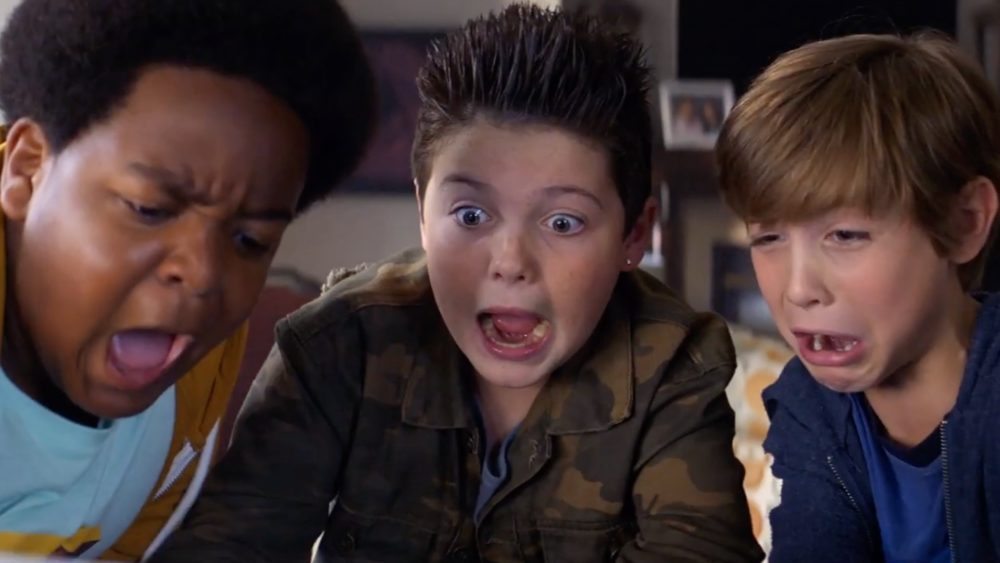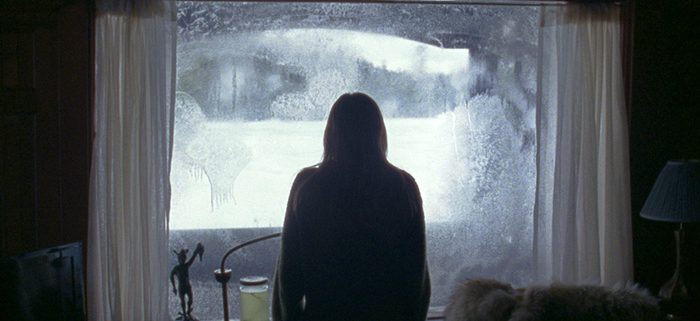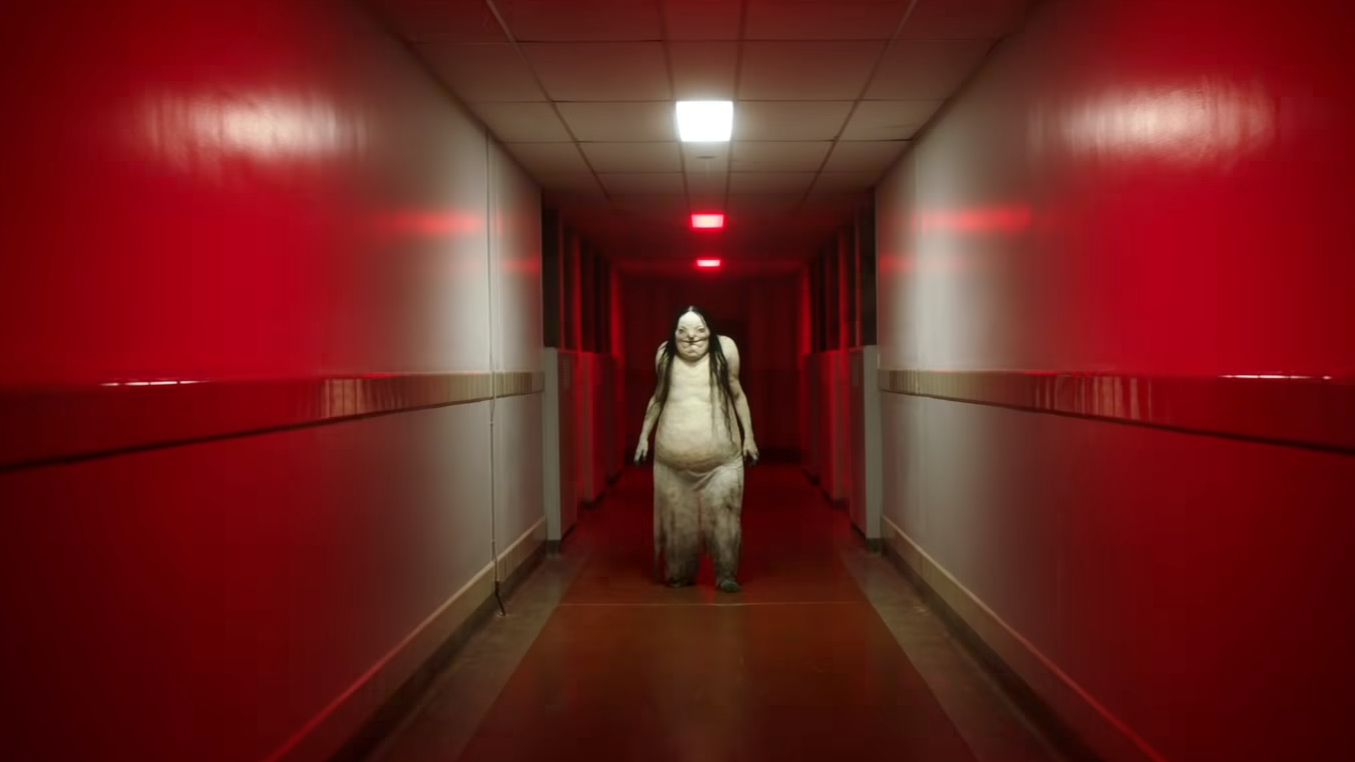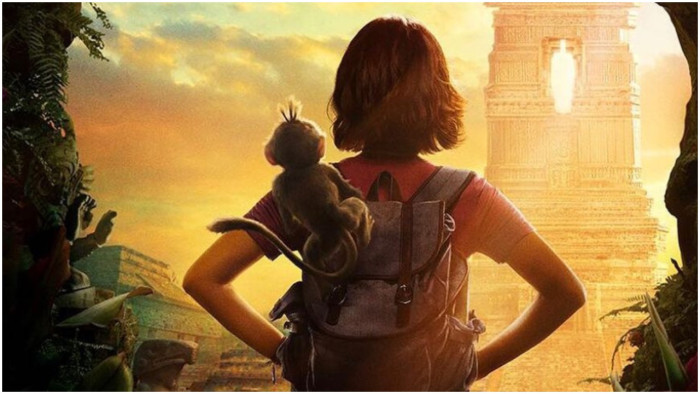Though it’s only a few years old, Columbus, Ohio’s Nightmares Film Festival (NFF) has not only established itself as a can’t miss event for horror fans, but one with revered traditions.
One of those is the annual release of its “Early 13,” a baker’s dozen of early selections that serve as a preview of the tone and style of its October 24 to 27 event. This year’s first wave of programming includes premieres, genre icons and exciting new voices.
Among the early selections are films from Elija Wood (Mandy), Severin Fiala and Veronika Franz (Goodnight Mommy), and Travis Stevens (Cheap Thrills), as well as films helmed by women directors from around the world, and two filmmakers returning to Nightmares with new projects.
“The Early 13 is an exciting tradition for us, and has really become the unofficial start of the festival,” said NFF co-founder Jason Tostevin. “We do it because we want to give everyone a sense of the breadth and depth of the program that will take shape in October.”
Representatives of the major programming categories at Nightmares — horror, thriller and midnight; shorts and features — are included in the list, as are two films that will play as part of the fan-favorite Saturday block: the “Late Night Mind Fuck” program.
“We choose the Early 13 each year based on their high scores with the jury, and also for their alignment with the spirit of the fest and the tone of that year’s program,” said co-founder Chris Hamel. “Just like the full lineup, there is something for every genre fan in this preview.”
Submissions are still being considered for another month at Nightmares. The Early 13 films are the only submission decisions the festival makes before the Sept. 13 submission deadline, Tostevin said.
Nightmares Film Festival has been called one of the world’s best horror film festivals by every major genre outlet. It has maintained its position as the world’s top-rated genre festival on the submission platform FilmFreeway for 33 consecutive months.
FEATURES
SWALLOW – Second screening worldwide – Thriller Feature
Directorial debut of Carlo Mirabella-Davis. Starring Haley Bennet (The Magnificent Seven).
A newly pregnant housewife finds herself increasingly compelled to eat dangerous objects. As her husband and his family tighten their control over her life, she must confront the dark secret behind her new obsession. A “deeply unsettling feminist thriller” (Variety).
EAT, BRAINS, LOVE – North American Premiere – Horror Comedy Feature
A zombie road trip film based on the hit novel by Jeff Hart.
When Jake and his dream girl Amanda contract a mysterious zombie virus and eat the brains of half their senior class, they must elude the government’s hunter — a teen psychic — as they search for a cure.
THE OBSESSED – World Premiere – Late Night Mind Fuck Feature
From Italian extreme director Domiziano Cristopharo (Nightmares winner Torment). Based on the real-life story of Bjork stalker Ricardo Lopez. Albania’s first horror film.
Cristopharo presents this dark and deeply affecting tour of the mind of a madman, via a body horror film featuring practical FX, including a penis with a mouth, teeth and tongue included.
DANIEL ISN’T REAL – Regional Premiere – Midnight Feature
The newest film from Elijah Wood’s SpectreVision. Stars Arnold’s son Patrick Schwarzenegger.
Luke, a troubled a college freshman, resurrects his childhood imaginary friend Daniel to help him cope with a violent family trauma. But as Daniel’s influence grows, it pushes Luke into a desperate struggle for control of his mind — and his soul.
THE LODGE – Regional Premiere – Thriller Feature
From Austrian directors Severin Fiala and Veronika Franz (Goodnight Mommy).
Trapped inside a cabin by a fierce blizzard, two children and their future stepmother must fight for their lives against an unseen evil force.
THE GIRL ON THE THIRD FLOOR – Regional Premiere – Horror Feature
Directorial debut of hit genre producer Travis Stevens (Cheap Thrills). Stars C.M. Punk.
A man tries to renovate a dilapidated house for his growing family, only to learn that the house has other plans.
RECKONING – Midwest Premiere – Thriller Feature
Created by husband and wife team Lane and Ruckus Skye.
Miles from the nearest power grid, Lemon Cassidy scratches out a humble living in an isolated Appalachian farming community. Her life is tossed into chaos when two men from the oldest family on the mountain hold her son hostage until she can settle a debt her missing husband owes to their cold-hearted matriarch.
SHORTS
LIPPY – Horror Short
Directed by Lucy Campbell
England
Two girls enter an underground world of strange forfeits and grisly demands when they are caught stealing lipstick testers.
GASLIGHT – Thriller Short
Directed by Louisa Weichmann
Australia
A waitress waiting for her bus on a deserted road is stalked by a vampire.
CHANGELING – Midnight Short
Directed by Faye Jackson
Scotland
A new mother is increasingly mesmerised and appalled by the strange transformations happening around her baby.
BOO – Recurring Nightmares Short (returning filmmaker)
Directed by Rakefet Abergel
USA
A traumatic event forces a recovering addict to face her demons.
REUNION – Horror Comedy Short
Directed by Andrew Yontz
USA
A woman spends the night with her friends she hasn’t seen in 10 years only to find out they may have become serial killers.
LIMBO – Late Night Mind Fuck
Directed by Dani Viqueira
Spain
When his family resolves to flee him, a man becomes unmoored from reality.
Nightmares returns to Columbus’s Gateway Film Center with its 2019 edition October 24 to 27.













